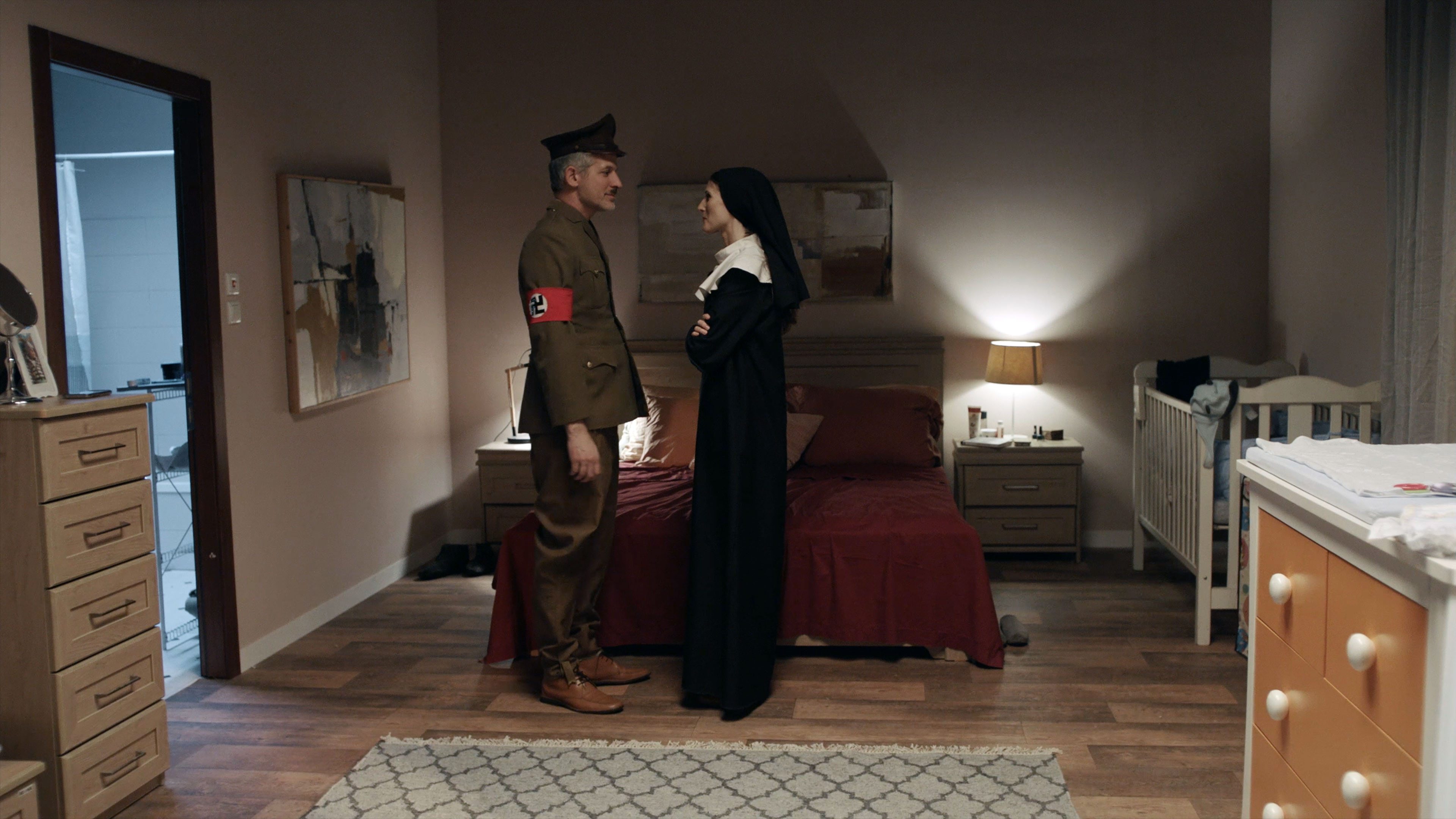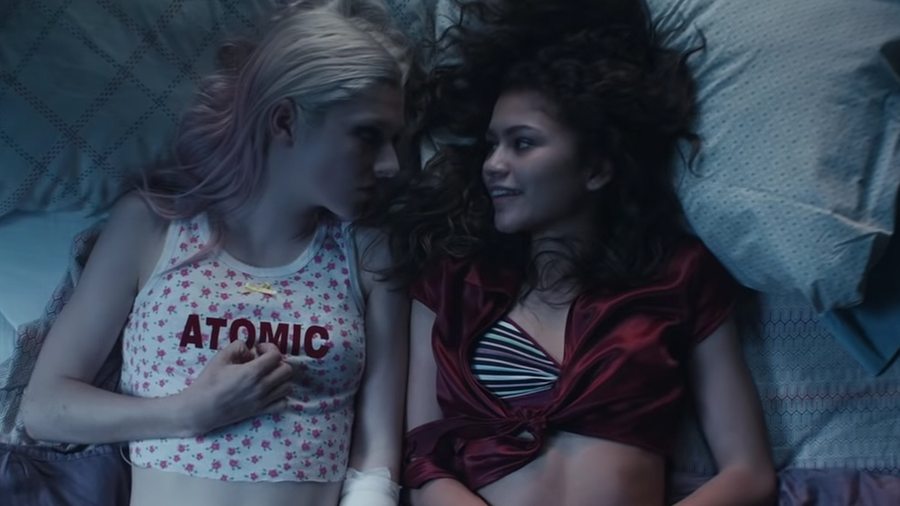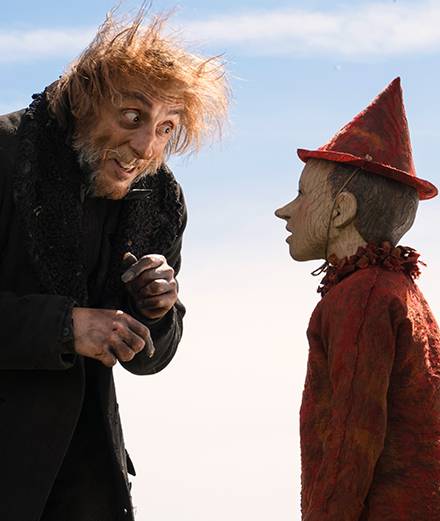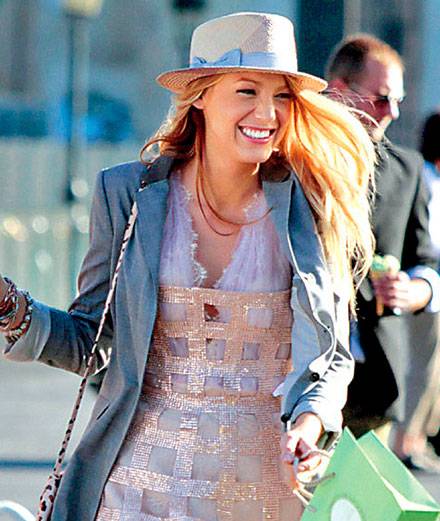Acclaimed by the critics and audiences around the world, Sam Levinson is a very fulfilled dad. He gave birth to a baby for a season of eight episodes: Euphoria (2019). Produced by superstar rapper Drake, broadcast on HBO last summer and met with unprecedented international enthusiasm (bringing together more than 5.6 million viewers on the streaming platform even though its on when people should be out getting drunk at parties), the series has single-handedly reinvented the teen drama genre complete with sex, drug-taking and smartphones. And has given HBO its second biggest success since Game of Thrones (2011-2019)…
The main character in Euphoria, the tortured teenager Rue (Zendaya) has a big sister: she’s called Hofit, has curly brown hair and is just as borderline. But she lives thousands of kilometres away in Israel. Invented in 2012 by the writer and showrunner Ron Leshem, this crisis-ridden teenage girl was born from the anxieties of the creator, and she’s also the heroine of Euphoria, made in Israel: she speaks Hebrew and was met with less success than her 2.0 version. Her character was adapted by HBO, who just bought the rights to the original series (without even bothering to change the name) and revisited in full American style – high school, chic suburbs and lots of great make-up.
’“Euphoria” (2019) Trailer by Sam Levinson.
Israel, birthplace of contemporary TV series
The show that marked 2019 and made Zendaya an icon of her generation is not the only one to have been born in the Middle-East: the hit series Homeland and In Treatment (2008-2010) are also adaptations. Shown on Canal+, Olivier Joyard’s documentary, Israel, Land of the Series, looks at these shows in the shadows, created in a country that’s better known for its political setbacks than television productions.
Directed with barely any means – one episode filmed in the USA costs the same as forty of the original series – and in little time, the Israeli shows are no less qualitive. In his documentary, Olivier Joyard portrays them as entertaining, intelligent and political, with people talking about them through their adaptations but having been original creations now acclaimed around the world.
“In Treatment” (2008-2010) de Rodrigo García sur HBO.
Original and exportable creations
Building on its success in Israel, the BeTipul series, conceived in 2005 by Hagai Levi (a former telenovelas showrunner), follows five patients and their therapy sessions with a depressed psychologist. It has taken on different forms with different actors in several countries around the world: in the United States, of course, where it became In Treatment, but also in Brazil (Sessão de Terapia), Argentina (En terapia), in Italy, even in the Czech Republic (Terapia)…
In a country “obsessed with 24-hour news channels”, TV series take a step back from that constant immediacy without ignoring politics: in Fauda, created in 2015 and then shown on Netflix the following year, we follow the elite undercover special forces unit Mista'arvim (specially trained to blend in with the Arab population), while in Our Boys (by the prolific creator of BeTipul, and also shown on Canal+), we are immersed behind the scenes of a news story that shook Israel and Palestine in 2014. Making a 70-year old conflict the subject of fiction, the show provoked the wrath of Israeli Prime Minister, Benjamin Netanyahu. The series was bought by HBO, without being adapted, and is still debated today in its country of origin.


Series, more than just fiction?
Shows that debate debates that become shows: Israel, Land of the Series, makes us think, more generally, about how in the 20th century, television was a political tool and that was the case around the world. While Chernobyl (2019), an American miniseries produced by HBO, seemed a necessary return to a disaster whose consequences are still barely known today, and the Marvelous Mrs. Maisel (by Amy Sherman-Palladino, currently showing on Amazon Prime) which looks back with delicious humour at the difficulties women faced trying to evolve in the word of stand-up comedy (at the dawn of the 1960s), these days television shows – veritable stars with the advent of streaming platforms – both denounce and explain, often through laughter, tears and fear, but without ever lacking emotion.
If it’s all about international adaptations of TV shows in Hebrew, one show seems to be bucking the trend: in Israel, Nehama is about a man whose life is turned upside down when he decides to pursue a career in comedy. A drama presented at the Cannes Series last year that is oddly reminiscent of comedies by Amy Sherman-Palladino, which has won numerous awards in the USA. While we’re being showered in ‘making ofs’ about American series, there are less documentaries about TV shows from elsewhere in the world, and Israel, Land of the Series shakes up the codes of the genre by highlighting the makers of series in a country better known for its conflicts.
Israël, terre de séries, available on myCANAL.
Our Boys, available on myCANAL.
Nehama, available on myCANAL.


























































